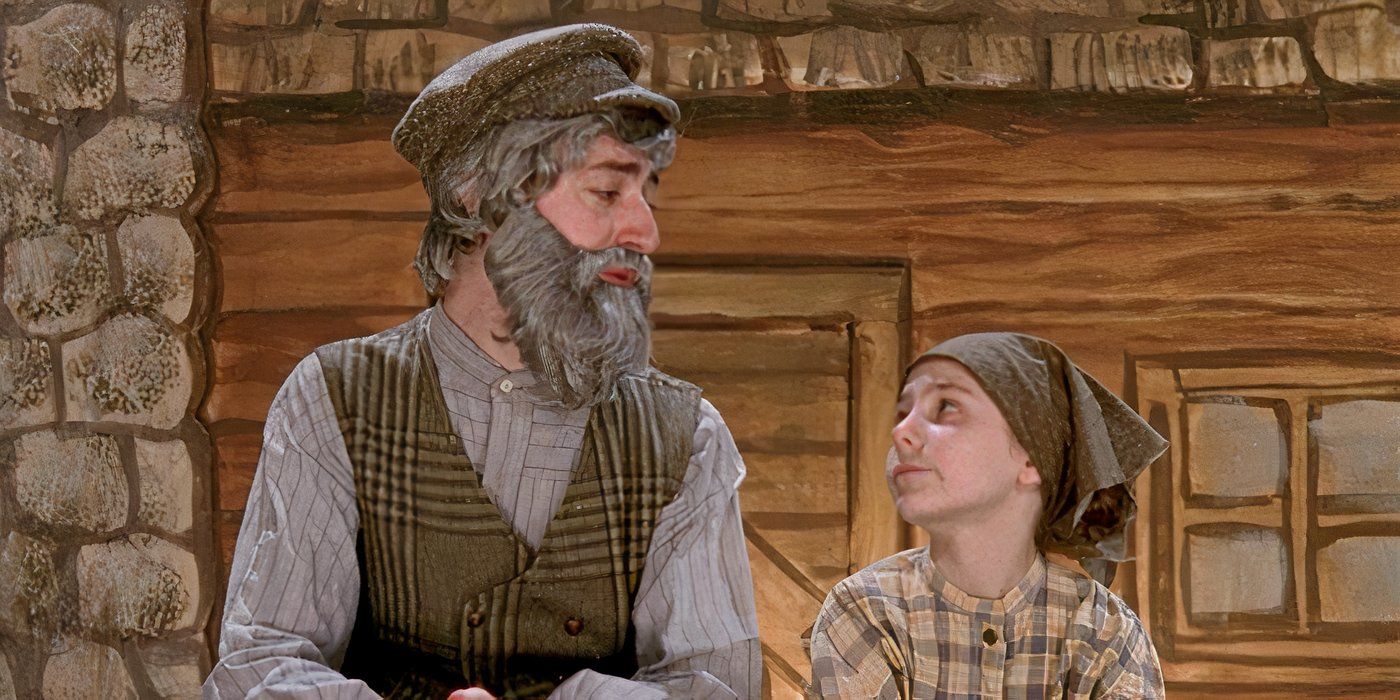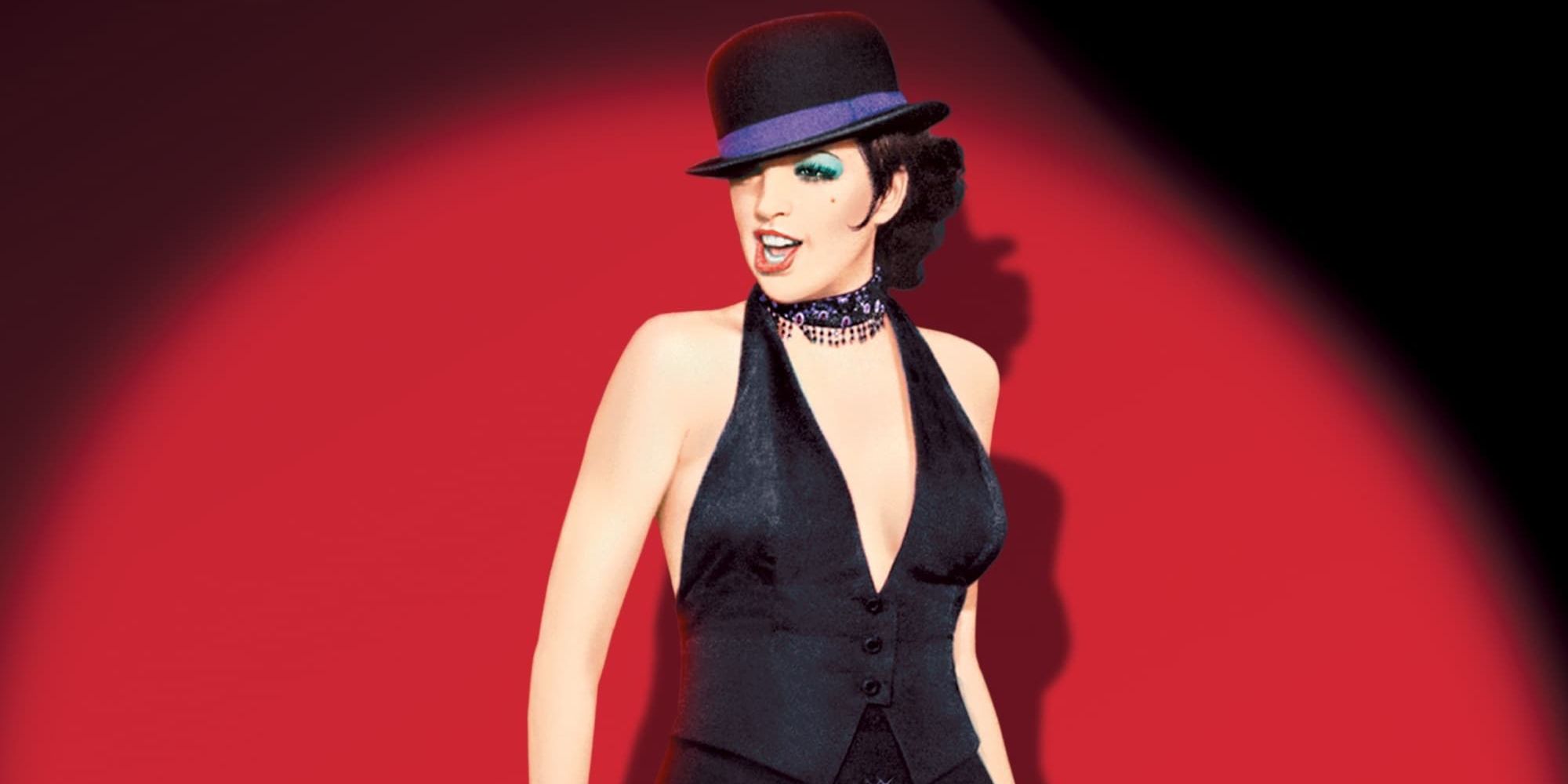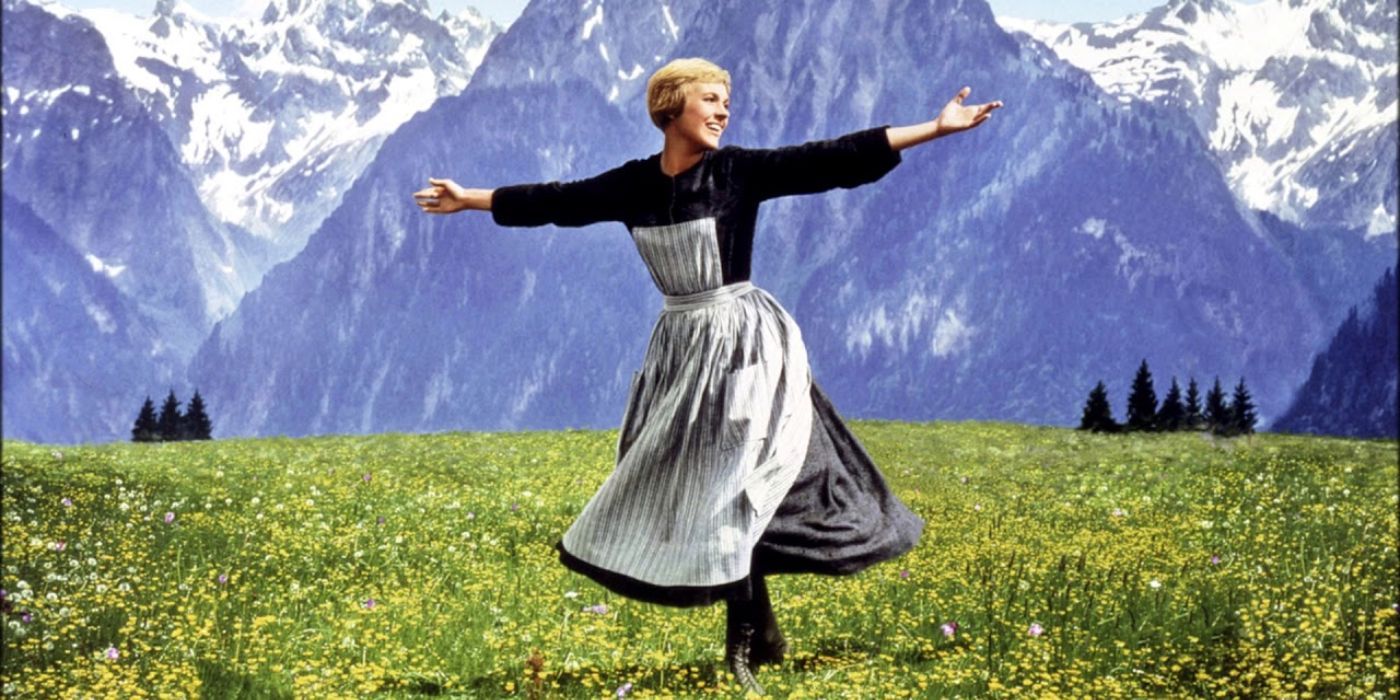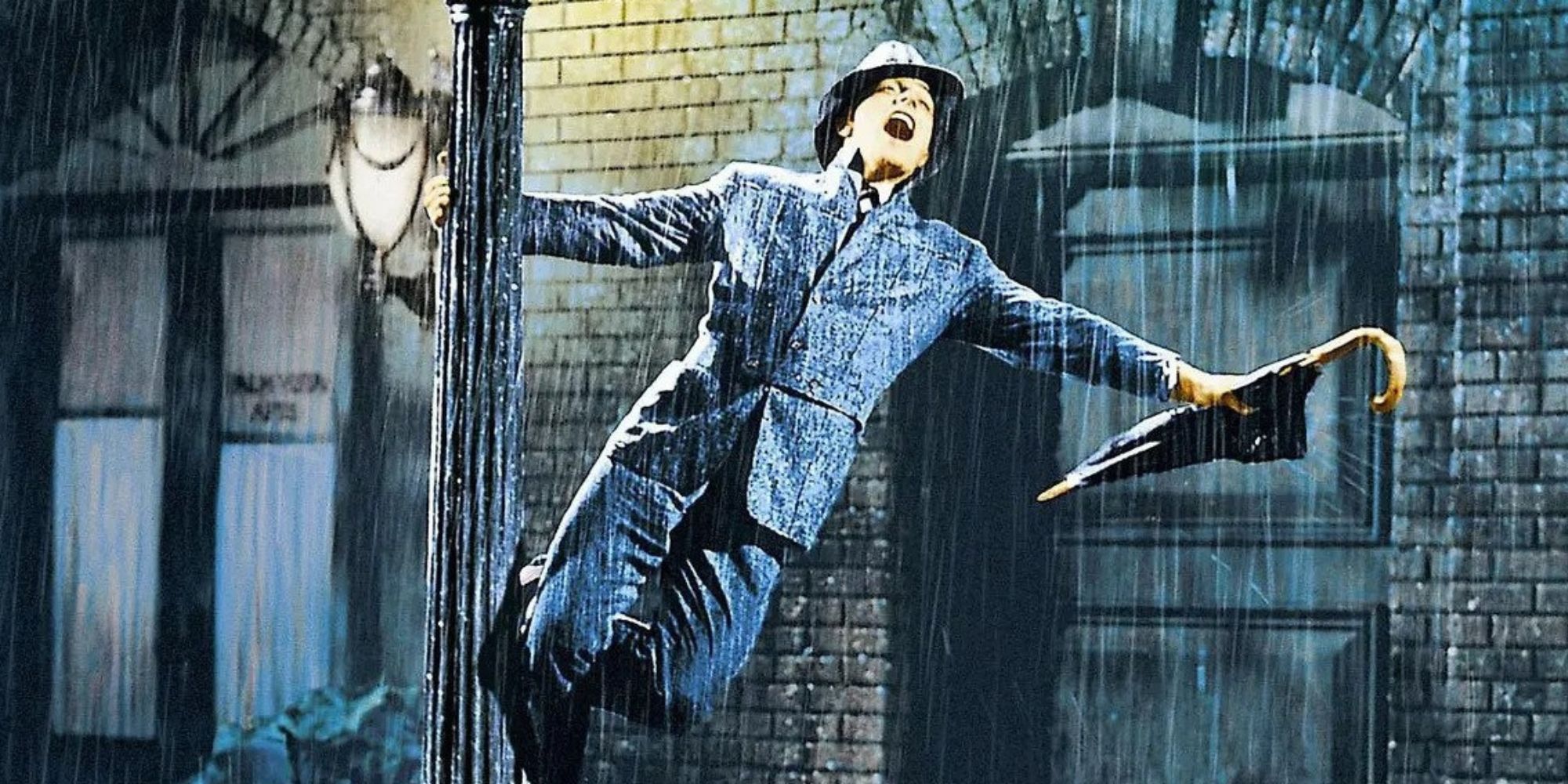10 Greatest Movie Musicals of the Last 100 Years, Ranked

A great movie musical lets you live inside the music. It’s where pure emotion gets externalized into choreography, where characters sing because speech simply isn’t enough. The genre can be joyous, tragic, surreal, and romantic, often all at once. With this in mind, this list looks the best of the best (a tough task, to be sure).
The musicals below hold up not just as showcases for song and dance, but as films: with visual invention, narrative power, and unforgettable performances. Across a century of cinema, these ten stand tallest. Some sparkle. Some ache. All of them sing.
10
‘Chicago’ (2002)
Directed by Rob Marshall
“He had it comin’.” Chicago has delighted audiences on both stage and screen for decades at this point. The 2002 movie version is glitzy, venomous, cynical, and irresistible. Rob Marshall took Bob Fosse‘s already razor-sharp stage show and sharpened it further for the cineplex, transforming a vaudevillian satire of crime and celebrity into a visual spectacle of jazz-age decay. For example, the decision to stage the musical numbers as fantasies inside Roxie Hart’s (Renée Zellweger) mind was a masterstroke. It allowed for theatrical exaggeration and narrative cohesion, grounding the razzle-dazzle in character psychology.
The cast members all rise to the occasion. Zellweger is all teeth and desperation, Catherine Zeta-Jones is pure dynamite, and Richard Gere delivers sleaze with panache. From “Cell Block Tango” to “All That Jazz,” the numbers are unforgettable; cut like action scenes, staged like fever dreams. Not for nothing, Chicago swept the Oscars that year.
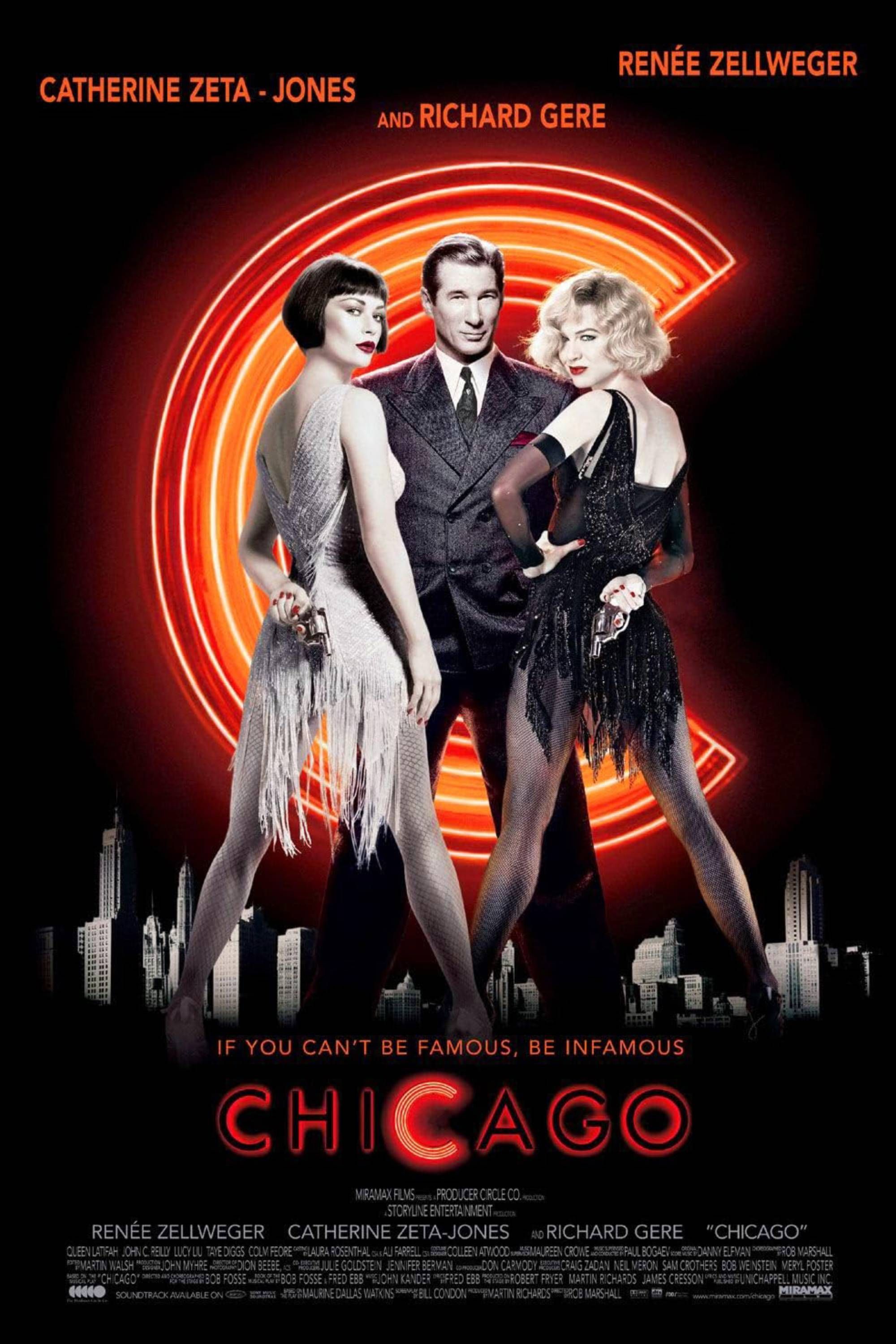
Chicago
- Release Date
-
December 10, 2002
- Runtime
-
113 Minutes
9
‘West Side Story’ (1961)
Directed by Jerome Robbins and Robert Wise
“Tonight, tonight, it all began tonight…” West Side Story is Shakespeare with a soundtrack. A high-style adaptation of Romeo and Juliet set in 1950s New York, it explodes with color, danger, and passion. The choreography is percussive, the camera glides like a dancer, and the songs (representing the killer pairing of Leonard Bernstein and Stephen Sondheim) do more emotional heavy lifting than most dialogue ever could. Natalie Wood and Richard Beymer might not have sung their own parts, but they sell the tragic romance with wounded sincerity.
Spielberg‘s take on the material is solid too, but the 1961 version stands apart because it radiates operatic ambition in every frame. Here, Robert Wise and Jerome Robbins craft a world that feels heightened yet raw, a city full of energy and jagged edges. The film doesn’t flinch from despair, either. “Somewhere” is as much a prayer as a promise, and its final moments still devastate.
8
‘Moulin Rouge!’ (2001)
Directed by Baz Luhrmann
“The greatest thing you’ll ever learn is just to love and be loved in return.” Moulin Rouge! is what happens when you light a glitter bomb inside a jukebox and film the explosion. Baz Luhrmann‘s maximalist, kaleidoscopic take on the musical genre is wildly anachronistic, deeply romantic, and utterly fearless. It shouldn’t work, and yet it works perfectly. Here, the director’s gonzo vision is never overbearing. The film’s genius lies in its mashup logic: turn-of-the-century Parisians belt out Madonna, Nirvana, and Elton John, and somehow it feels natural.
The editing is fittingly breathless, the production design is opulent beyond reason, and Ewan McGregor and Nicole Kidman are deeply likable in the lead roles. Practically every sequence is a showstopper, from the giddy whirlwind of “Elephant Love Medley” to the heartbreaking final moments of “Come What May.” Moulin Rouge! isn’t subtle, but it doesn’t need to be. It believes, with almost religious fervor, in the power of love and music.
7
‘The Umbrellas of Cherbourg’ (1964)
Directed by Jacques Demy
“Why do people marry? Out of love, or because they’re afraid of being alone?” This is a musical where every single line is sung. No dialogue, no breaks, just a constant tide of melody carrying you through love, war, and heartbreak. Yet, while Jacques Demy‘s The Umbrellas of Cherbourg is more opera than musical in form, its emotions are intimate and human. Shot in saturated pastels and choreographed with quiet grace, it turns a modest story into something mythic.
It’s a story of love lost and life going on, but it never feels bitter. Instead, it’s suffused with melancholy beauty. On the acting front, Catherine Deneuve is luminous as the young shopgirl swept into a romance that time and circumstance slowly dismantle. The score by Michel Legrand is unforgettable, especially the central theme, simultaneously hopeful and haunting. The Umbrellas of Cherbourg doesn’t wow showstoppers or spectacle, but it does something arguably more impressive. It lingers.
6
‘All That Jazz’ (1979)
Directed by Bob Fosse
“It’s showtime, folks.” If Cabaret was Bob Fosse’s most political film, All That Jazz is his most personal. A fever-dream biopic of a self-destructive artist who’s clearly Fosse in everything but name, it’s part musical, part confessional, part hallucination. Every sequence pulses with anxiety, sweat, and brilliance. At the center of it all, Roy Scheider turns in a fantastic performance as Joe Gideon, a womanizing, pill-popping director choreographing a musical while editing a film (and ignoring his failing body).
The musical numbers are surreal, dazzling, and often terrifying. “Bye Bye Life” is possibly the most joyous depiction of a heart attack ever filmed, for example. Overall, All That Jazz is brutally honest about the costs of ambition and ego, but it also celebrates the transcendent power of performance. It’s a musical for people who are afraid of dying but more afraid of slowing down. One of the very best of the 1970s.
5
‘La La Land’ (2016)
Directed by Damien Chazelle
“Here’s to the ones who dream.” A lot of people hate on this movie, and it is admittedly flawed, but it also boasts a ton of strengths. A love letter to classic Hollywood musicals that still manages to feel personal and modern, La La Land is wistful, ambitious, and bittersweet. Here, Damien Chazelle walks a tightrope between homage and innovation, and somehow never stumbles. The film’s opening sequence, an overpass traffic jam turned kaleidoscopic dance, is a statement of intent: this is a world where dreams are choreography.
The songs by Justin Hurwitz, Benj Pasek, and Justin Paul are charming and melancholic, especially “City of Stars” and “Audition (The Fools Who Dream).” However, beneath the tunes and dance numbers, this is a tender story about love that doesn’t survive ambition. Ryan Gosling and Emma Stone have natural chemistry, but more importantly, they share a palpable sadness, two people bound by what might have been.
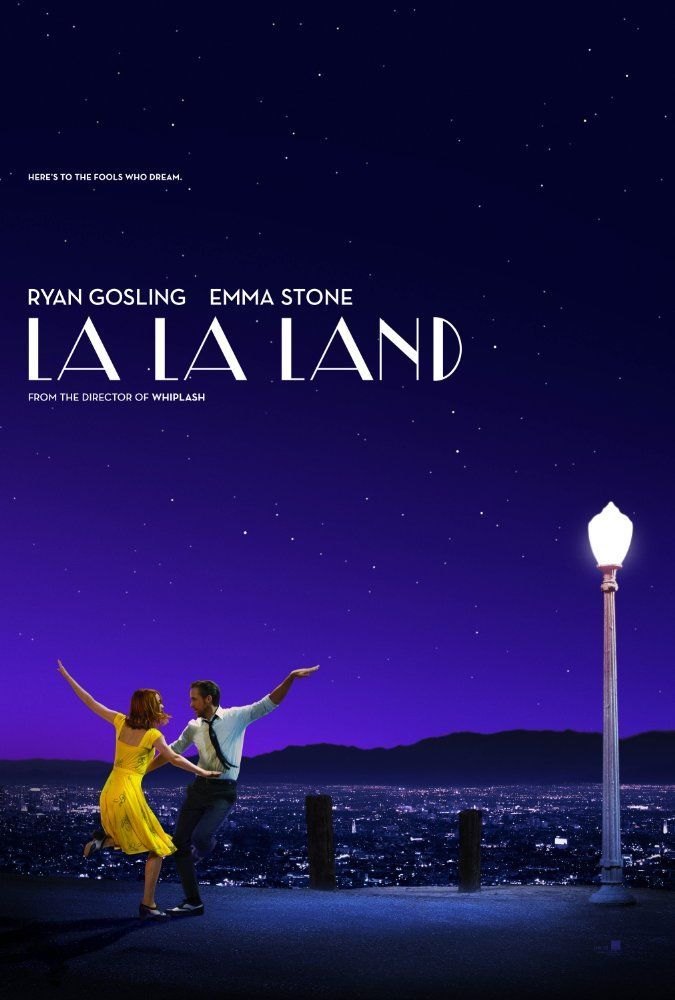
La La Land
- Release Date
-
December 9, 2016
- Runtime
-
128 Minutes
4
‘Fiddler on the Roof’ (1971)
Directed by Norman Jewison
“Without our traditions, our lives would be as shaky as a fiddler on the roof.” Some musicals dazzle. Some mourn. Fiddler on the Roof does both, while also offering a grounded, nuanced portrait of cultural transformation and paternal love. That’s a lot to juggle at once, but Norman Jewison‘s adaptation makes it look easy. Rich with humor and sorrow, this classic charts the slow unraveling of a way of life. At its center is Topol as Tevye, a milkman whose conversations with God double as meditations on faith, family, and change.
His daughters each challenge the customs of arranged marriage, pushing Tevye to the limits of tolerance and heartbreak. The songs, including bangers like “Tradition,” “If I Were a Rich Man,” and “Sunrise, Sunset”, are deceptively simple and deeply resonant. The performances are warm, the cinematography is surprisingly stark, and the final act hits like a quiet thunderclap.
3
‘Cabaret’ (1972)
Directed by Bob Fosse
“Life is a cabaret, old chum. Come to the cabaret.” With Cabaret, Bob Fosse took the musical and turned it inside out. Set in Weimar Berlin as fascism looms, the film’s brilliance lies in how it keeps the decadence dancing even as the world begins to collapse. It’s one of the few musicals where the songs are diegetic, performed in the Kit Kat Klub, yet they reflect the emotional and political undercurrents outside. The film becomes a statement on distraction in the face of doom.
Liza Minnelli‘s performance as Sally Bowles is volcanic: fragile and fierce, childlike and cunning, totally unforgettable. Opposite her, Joel Grey‘s Emcee is both a jester and a grim harbinger. In most musicals, characters break into song to express here. In Cabaret, they sing to mask it. Rather than trying to connect, they’re mostly just trying to survive. The final moments, in which the camera lingers on a distorted reflection of the audience, hit very hard.
2
‘The Sound of Music’ (1965)
Directed by Robert Wise
“When the Lord closes a door, somewhere He opens a window.” Yes, it’s earnest. Yes, it’s been parodied to death. But that doesn’t change the fact that The Sound of Music is one of the most rapturously beautiful musicals ever made. Robert Wise treats the material with sincerity and grandeur, turning a story of faith, love, and quiet rebellion into a cinematic epic. It helps that the stars are generational talents. Julie Andrews is radiant as Maria, and her dynamic with Christopher Plummer gives the romance a real pulse.
In a century of musicals, few have managed to be this beloved, this well-made, and this enduring. The songs are iconic (“Do-Re-Mi,” “My Favorite Things,” “Edelweiss”) and the staging is meticulous. Even the most sugar-sweet moments are grounded in emotional truth. But beyond the courtship, it’s a film about values, most of all the courage to do what’s right even when it’s dangerous.
1
‘Singin’ in the Rain’ (1952)
Directed by Gene Kelly and Stanley Donen
“Dignity. Always dignity.” (Arguably) the greatest movie musical of all time is also the most joyful. Singin’ in the Rain is a fizzy, self-aware, endlessly inventive film about the chaos of early Hollywood’s transition to sound. It skewers the industry with wit, but never loses its warmth. Gene Kelly, Debbie Reynolds, and Donald O’Connor are pure magic together, all graceful, goofy, and completely irresistible. In terms of the musical numbers themselves, “Make ‘Em Laugh” is a masterclass in physical comedy and “Good Morning” is the very definition of charm.
And, of course, the title number is transcendent. Yet what really makes Singin’ in the Rain special is how effortless it all feels. Every sequence is stitched with love and precision. The satire lands, the romance works, and the dancing is superhuman. It’s the musical that musicals dream of being: timeless, light as air, and impossible not to love.
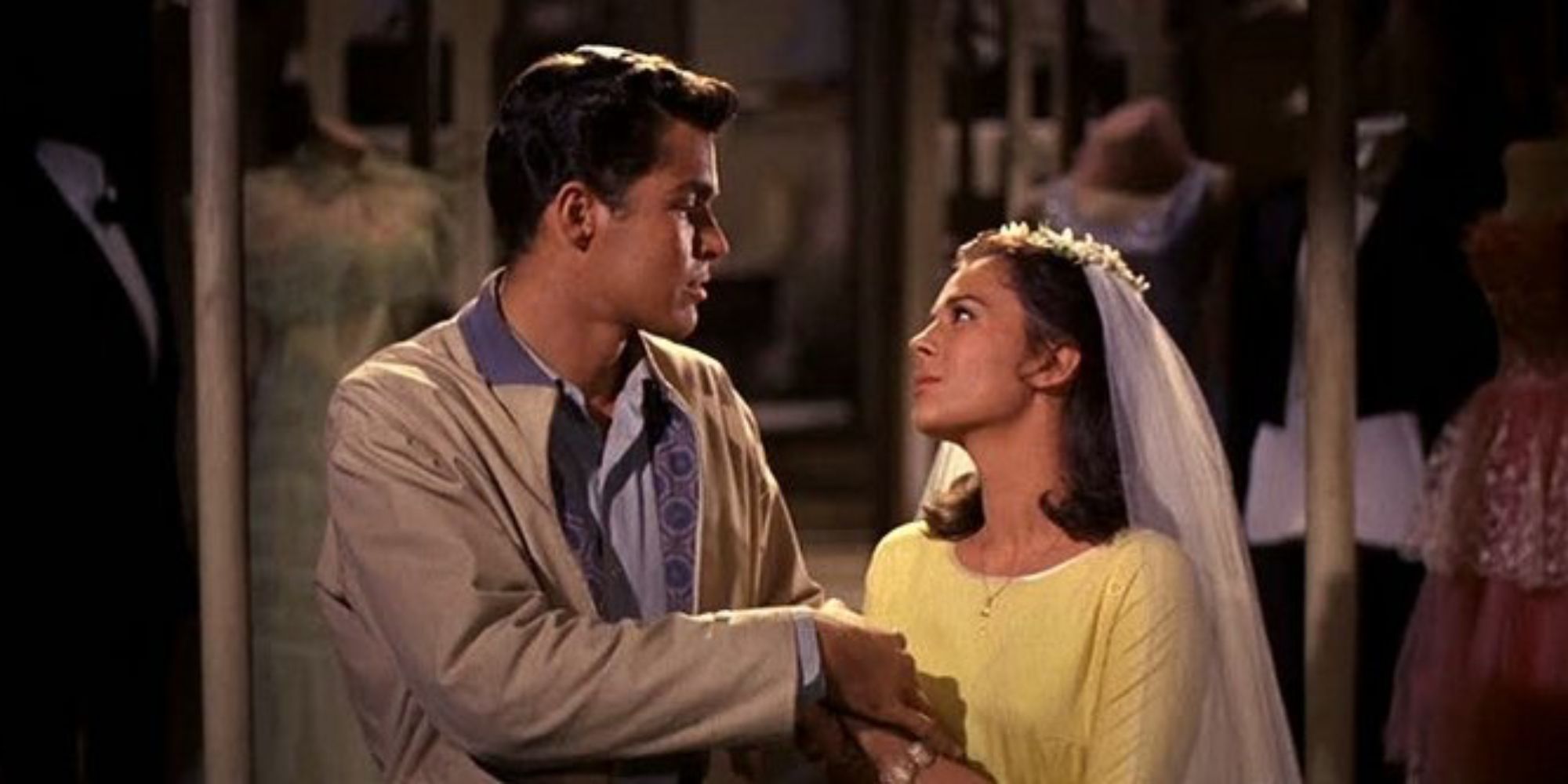
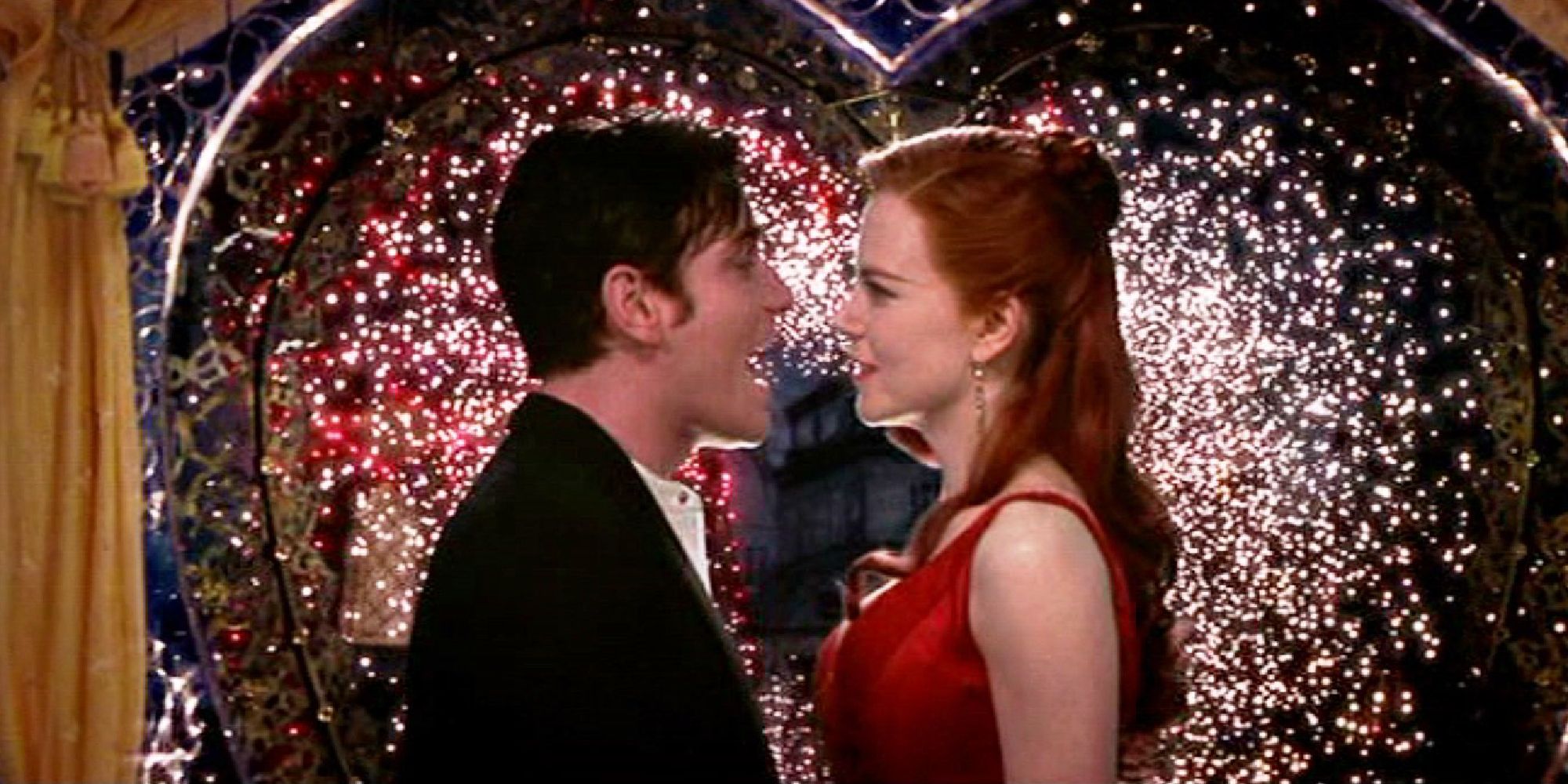
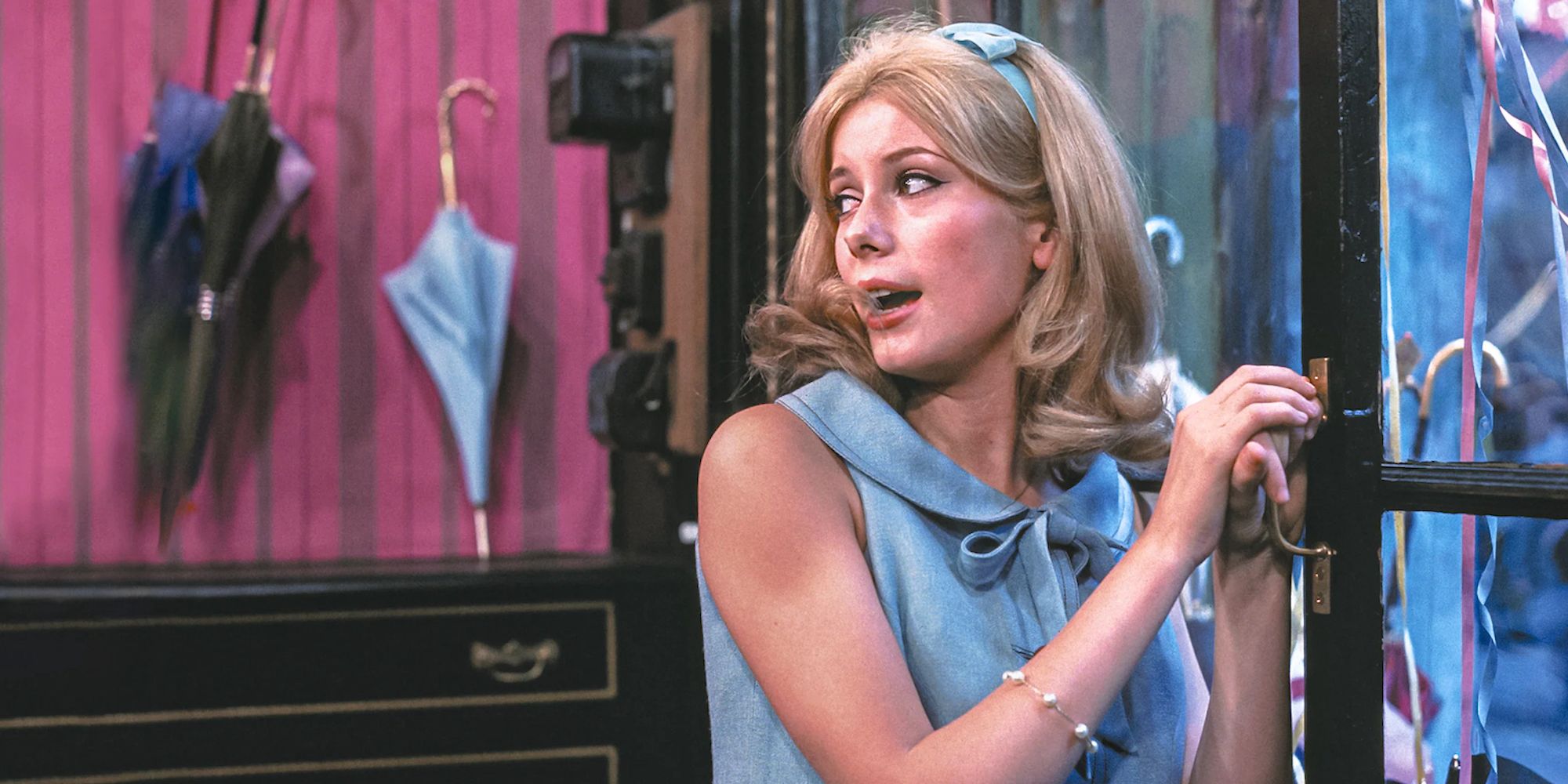
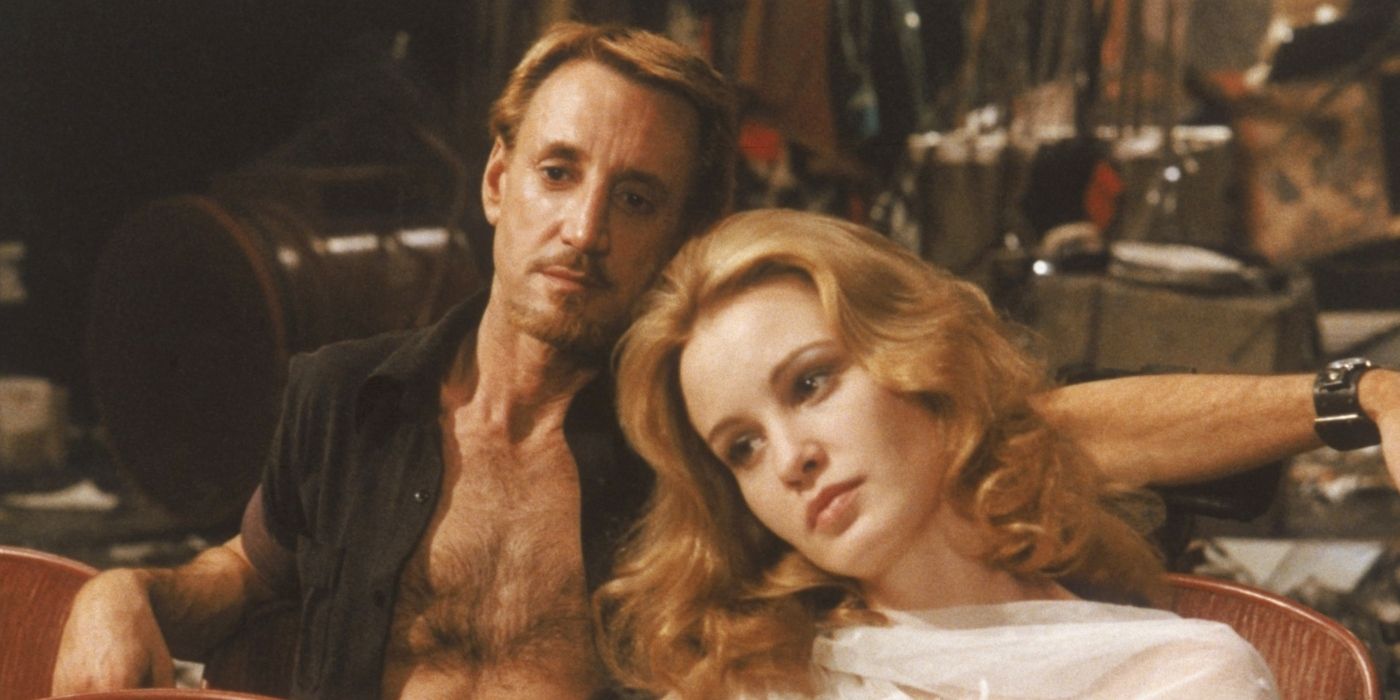
.jpg)


